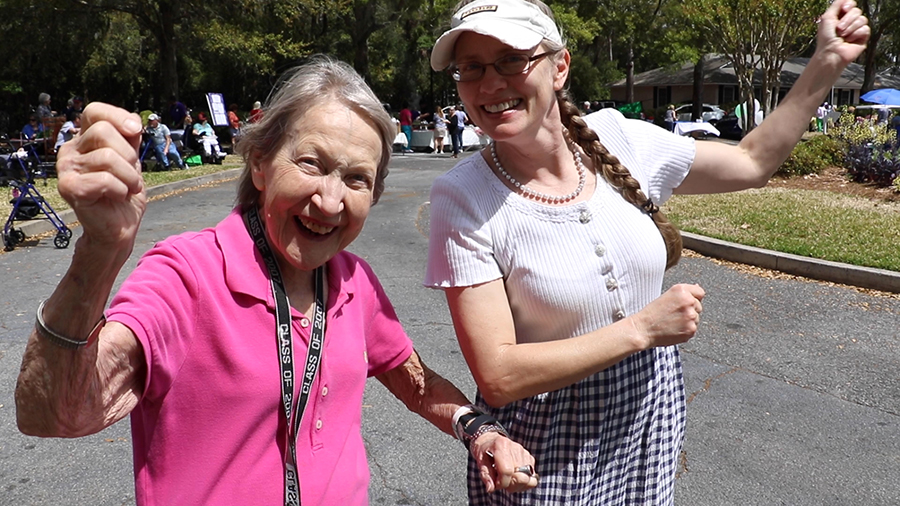Download our Free Guide:
Senior Living Explained
Learn what different types of senior living care are available and which one best fits your needs now and in the future.



“Oh, my aching feet!” You don’t have to be a senior citizen to relate to this complaint. But for older adults, foot problems can be more than an achy annoyance, they can be downright painful and lead to serious consequences. Yet, while we know that self-care is vital for seniors to thrive, foot care is often overlooked as part of that regimen.
Feet Do More than Show Off Your Shoes
%20low%20res.jpg?width=425&height=283&name=2022%20Breast%20Cancer%20Awareness%20Walk%20(3918)%20low%20res.jpg) “Frequent painful foot problems occur in an estimated 24% of older adults and have been shown to impair balance and foot function and more than double the risk of falling,” notes an article published in the Journal of the American Podiatric Medical Association. They say we shouldn’t be surprised by foot pain as we get older, since most people will have walked about 75,000 miles by age 50.
“Frequent painful foot problems occur in an estimated 24% of older adults and have been shown to impair balance and foot function and more than double the risk of falling,” notes an article published in the Journal of the American Podiatric Medical Association. They say we shouldn’t be surprised by foot pain as we get older, since most people will have walked about 75,000 miles by age 50.
Because foot problems can make it difficult or just no fun to exercise or even walk, they can increase the risk of heart disease and weight gain and exacerbate complications of chronic disease, especially diabetes and arthritis. Foot problems can also lead to infections that could become dangerous if untreated.
Happy, healthy feet are vital to maintain mobility, independence, physical comfort, and overall well-being.
What Happens to Our Feet as We Age
 Aside from wear and tear, foot problems occur because our health or feet themselves change.
Aside from wear and tear, foot problems occur because our health or feet themselves change.
Diabetics Face Even Greater Risk
 Diabetes impairs circulation, which can lead to nerve damage and numbness in the feet, called neuropathy. Non-diabetics can also develop neuropathy. The reduced sensitivity makes it hard to feel cold or heat or to know if you have an injury (even something small, such as a blister) or infection, so problems can progress further without treatment. Ulcers and other damage can eventually require amputation, so regular foot care and medical visits are critical.
Diabetes impairs circulation, which can lead to nerve damage and numbness in the feet, called neuropathy. Non-diabetics can also develop neuropathy. The reduced sensitivity makes it hard to feel cold or heat or to know if you have an injury (even something small, such as a blister) or infection, so problems can progress further without treatment. Ulcers and other damage can eventually require amputation, so regular foot care and medical visits are critical.
Steps That Lead to Happier Feet
If you take good care of your feet, they will repay you with more years of faithful service, less worry about pain or falling, and greater comfort.
Enjoy a Stroll at Any of Our 8 Campues
All of Magnolia Manor's eight senior living campuses in south Georgia have beautiful outdoor spaces for our residents and their guests to enjoy. Come see for yourself! Schedule a tour today or give us a call at (855) 540-LIFE to learn more.
Learn what different types of senior living care are available and which one best fits your needs now and in the future.
